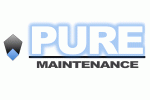Savvy Senior: How to cover dental care in retirement
Dear Savvy Senior: I had dental insurance through my work for many years but lost it when I retired and joined Medicare. Where can retirees find affordable dental care? — Uninsured Al
Dear Al: Unfortunately, about two-thirds of U.S. retirees don’t have dental insurance. Without coverage from traditional Medicare, and with private dental insurance typically costing too much to be feasible, most seniors are stuck paying full out-of-pocket prices every time they visit a dentist. While there’s no one simple solution to affordable dental care, there are a variety of options that can help cut your costs. Here’s where to look:
Medicare Advantage: While dental services are mostly excluded under original Medicare, many Medicare Advantage plans do provide coverage for dental care, but it’s usually very limited. To shop and research Advantage plans in your area, visit Medicare.gov/plan-compare or call 800-633-4227.
Dental insurance: If you have gum problems and need extensive dental care, a dental insurance plan may be worth the costs versus paying for care out of pocket. Monthly premiums for individual plans range from about $20 to $80. A typical plan includes two or three cleanings and checkups per year, but these plans will probably have a waiting period before coverage for more expensive procedures kicks in. To find dental plans in your area, see eHealthInsurance.com.
Dental savings plans: While savings plans aren’t as comprehensive as insurance, they are a good option for those who don’t have dental insurance. You pay an annual membership fee — around $80 to $200 a year — in exchange for 10 percent to 60 percent discounts on service and treatments from participating dentists. To find a savings plan, go to DentalPlans.com, where you can search for plans and participating dentists, as well as get a breakdown of the discounts offered.
Veterans’ benefits: If you’re a veteran enrolled in the VA health care program or are a beneficiary of the Civilian Health and Medical Program, the VA offers a dental insurance program that gives you the option to buy dental insurance through Delta Dental and MetLife at a reduced cost. The VA also provides free dental care to vets who have dental problems resulting from service. To learn more about these options, visit VA.gov/dental or call 877-222-8387.
Cheaper dental care: Because prices can vary by dentist, one way to ensure you get a good deal on your dental care is to call multiple providers and compare prices. To get an idea of what different dental procedures cost in your area, see FairHealthConsumer.org. If you’re paying cash, it’s also perfectly reasonable to ask your dentist for a discount.
A number of health centers and clinics provide low-cost dental care to those in need. Also, university dental schools and college dental hygiene programs offer dental care and cleanings for less than half of what you would pay at a dentist’s office. Students who are supervised by their professors provide the care. See TeethWisdom.org to search for a center, clinic or school near you.
Send your senior questions to: Savvy Senior, P.O. Box 5443, Norman, OK 73070, or visit SavvySenior.org.

























